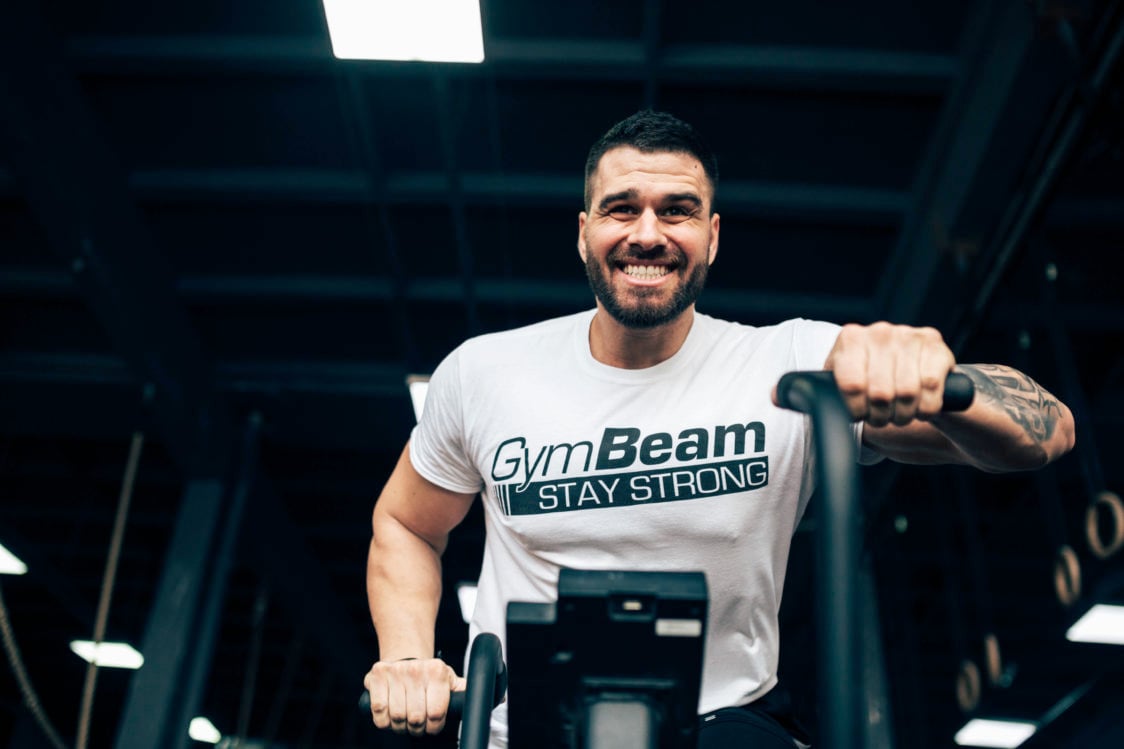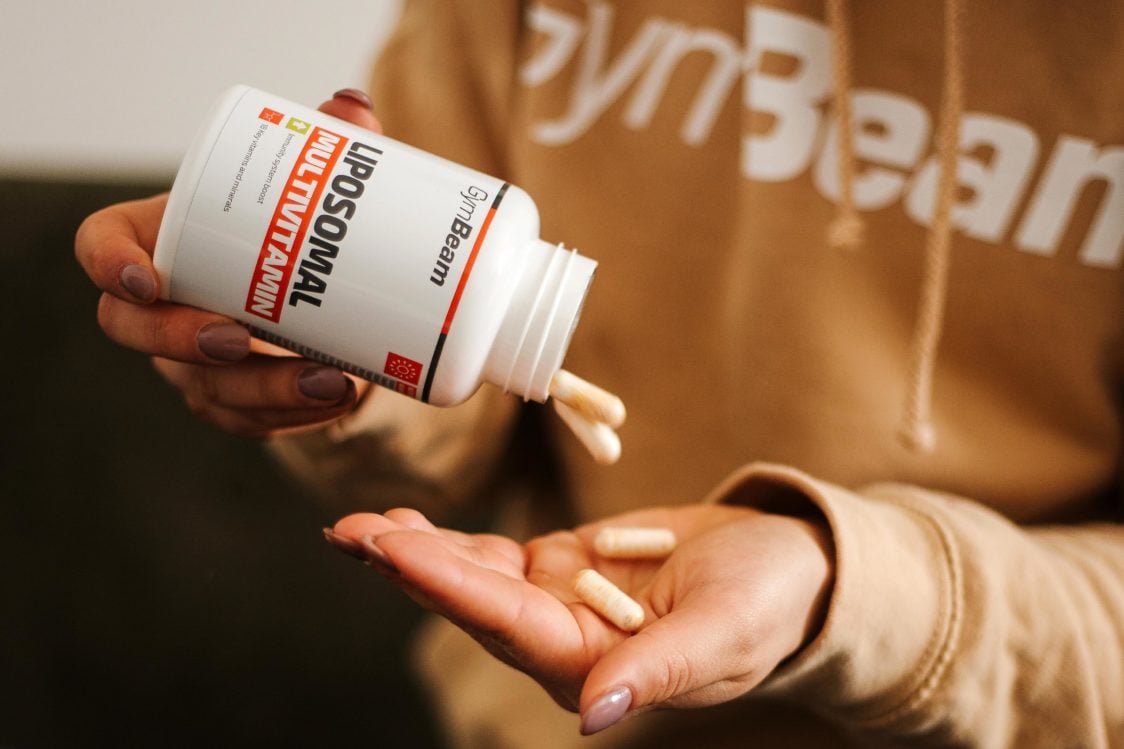Table of Contents
The simple effort to look good or the desire for a toned body with a minimum of fat is one of the most common reasons why we commence a diet that is often accompanied by a hellishly demanding training plan. Since most people want to see the results in 5 days at the latest, they start eating salads three times a day, while having strength training four times a week and going for a run three times a week. Yes, but after a few days, they may start to feel like something’s not quite right. There is not enough juice for training, they feel more and more tired, and during the day it is impossible to focus on something due to constant thoughts about food. Then they start asking themselves if this is really how they’re going to achieve a dream body similar to the ones the sporty couple had on the cover of Muscle & Fitness.
Well, they won’t, because eating drastically little and training hard is not the way to success, but rather the hospital. This and other similar drastic approaches have a number of negative effects on our body. Every cell in the body is dependent on energy, and when the body begins to receive hormonal signals that food and energy are scarce, it begins to conserve it, limiting the optimal functioning of a number of body systems that are not exactly a priority for preserving life. It’s basically like crisis management. Energy is simply saved wherever it can be.
Everybody needs energy for the healthy course of all basic bodily functions. This brings you to energy balance, which expresses how energy intake is reflected in your body weight.
- Negative energy balance: A state where you burn more energy than you receive, lose weight and lose body mass.
- Balanced energy balance: A state where you have an averageenergy intake and output in equilibrium and maintain body weight.
- Positive energy balance: A condition where you burn less energy than you take in and gain weight.
As you may all suspect, no extreme is good, even if the negative and positive energy balances are too high. The key to proper weight loss or gain is to receive slightly less or more energy than the optimal energy intake. It’s not a sprint, it’s a marathon. Weight-loss sprinters usually run out of breath and go back to business as usual. Conversely, marathoners achieve the desired results with consistent work.
If you want to calculate how much energy you should ideally receive per day, our Online Energy Intake and Macronutrients Calculator will assist.

What happens if you eat too little and become a weight-loss sprinter?
If you excessively reduce energy supply in your diet and exercise regularly, you can get into a state of a relative lack of energy in sport called RED-S. This concept covers a whole series of events, processes and changes that take place in your body, which are not very pleasant or healthy. From a physiological point of view, you can observe a negative effect on immune function, bone or heart health. However, it is not only people who deliberately eat little and over-sport who are at risk because virtually every person with a high energy output can “work their way up” to a low energy intake. [1–2]
Typically, we can talk about athletes competing in a discipline that has high aesthetic demands, or those where lower body weight can be a competitive advantage. This list includes, for example, bodybuilding and fitness, gymnastics, ballet, combat and endurance sports, athletics, equestrian and beach volleyball. Add to that, for example, a physically demanding profession, and at first, you may not even know that you are at risk of insufficient energy intake.
What does it mean to eat very little?

You can calculate the risk of insufficient energy intake using energy availability (EA). This expresses the amount of energy you have left after subtracting the energy spent on exercise. At the same time, you need to know fat-free mass (FFM) to calculate it. You only need to know the percentage of body fat to determine it.
Energy availability:
Jane is 60 kilograms, 15% body fat (51 kg FFM), receives 1,800 kcal and burns 800 kcal per day through sport.
- EA = EI (energy intake) – EEE (exercise energy expenditure) = 1 800 – 800 = 1 000 kcal
- EA/FFM (fat-free mass) = 1 000/51 = 19.6 kcal/kg/FFM – energy availability risk
- The risk value is less than 30 kcal/kg/FFM
- Value tolerated in the short term for weight loss is 30-45 kcal/kg/FFM
- The optimal value for men is 40 kcal/kg/FFM and for women it is 45 kcal/kg/FFM
Jane consumes approximately 1300 fewer calories than she should and is thus threatened by the emergence of a number of health problems, which we will discuss below. The problem of insufficient energy intake affects both women and men. In women, this problem is particularly visible because of the impact of energy availability on menstrual problems. [3]
1. “Slowed metabolism”
Especially if you are taking in insufficient amounts of calories for an extended period of time, or if you have been through a series of particularly extreme diets in the past and your body has not yet recovered, you can really see something like a “slowing metabolism.“ This term is also known as adaptive thermogenesis. This term refers to a greater reduction in energy output than you could predict and calculate on the basis of body weight. [4-7]
And how much of an unexpected reduction in energy output can there be? This is a deviation of about 10-15% from the calculated assumption or about 50-500 kcal. You can see this as a cascade of changes and measures taken by the body to keep you alive during periods of energy deprivation. You simply cannot outsmart evolutionary survival mechanisms. [4-7]
Further efforts to lose weight in this case would somehow be destined for failure. That is why, in this case, you need to give time to the process and slowly increase energy intake to healthier values so that you are in the optimal energy availability and energy intake band.
If you are interested in the subject of a slowed metabolism in more detail, read our article Can I Have A Slowed or Damaged Metabolism? 5 Tips to Speed Up Your Metabolism.

2. Female Athlete Triad: Increased risk of fractures, menstrual problems and low energy availability
The Female Athlete Triad is a combination of three co-occurring factors in the female body in the form of menstrual problems, bone thinning and low energy availability (with or without diagnosed eating disorders). This phenomenon is most common among young female athletes with low energy intake and a high volume sports load. We can typically name the whole area of fitness (not only racing), gymnastics, figure skating, athletics or endurance sports as contributing to this phenomenon. [8-11]

Female Athlete Triad
- Low energy availability represents a threshold of 30 kcal/kg/FFM, which should not fall further in the long term. The optimum value is considered to be 45 kcal/kg/FFM.
- Menstrual problems in the form of irregularity or complete absence of.
- Decreased bone density leading to bone thinning (osteoporosis) and the result is an increased risk of fractures (especially fatigue).
With the loss of menstruation, women also lose their fertility and it may take several years before all can be successfully resolved and return to normal. [12-14]
Before you throw yourself headlong into losing weight on a salad diet and exercising twice a day, think about what it will cost you and how you imagine your life in a few years. You may want children, and because of your desire for a perfect look, their entry into your life can take considerably longer. [12–14]
But beware, low energy intake can also have a negative effect on the reproductive function of men. Therefore, it is not a good idea to stick to some form of diet when trying for offspring. [15]
Are you interested in the subject of the Female Athlete Triad? Read our detailed article on this topic in the article How To Fight the Absence of Menstruation and Other Symptoms of the Female Athlete Triad?
3. Mood swings, fatigue and poor sleep
You may even find yourself in a worse mood when you are in a large calorie deficit or your last meal was hours ago, and you are hungry. One study found that 62% of adolescents who were classified as “extreme dieters” experienced high levels of anxiety and depression. However, this may also be associated with an overall negative self-perception, which is why people generally resort to diets. Also, low energy intake affects dopamine and serotonin, which are hormones that affect your mood. [16-19]
Perhaps it is not surprising that without sufficient energy intake you can feel much more tired and the body can somehow motivate you to move as little as possible and conserve energy.Ordinary stair running or previously normal activity may thus seem like the ultimate sporting achievement.
Have you ever woken up at night with a “tummy tingling” and were hungry? Or did these body signals keep you from falling asleep? It is nothing unusual, it is a frequent manifestation and a negative effect of low energy intake on the quality of sleep. Thus, you can encounter problems with falling asleep, frequent awaking during the night and low sleep quality, which in turn can manifest itself in impaired mood and negatively affect cognitive performance. [20]
If you want to learn more about sleep, read our article How to Improve Sleep and How it Affects the Health and Growth of Muscle Mass?
You might be interested in these products:
4. Hunger, cravings, constant thoughts of food and overeating

Have you ever been in the vicious circle of dieting and overeating intending to try again as of Monday? The fact that you are not alone can calm you down.
Why does the body start to complain more and more loudly about food during dieting? Low energy intake negatively affects a number of the hormones responsible.
- stress hormone Cortisol
- hunger and satiety hormones (Leptin & Ghrelin)
The greater the dietary restrictions, the more strongly you can observe compulsive cravings, especially for high-calorie foods. [21–22]
This can then lead to the aforementioned cycle of drastic dieting during the week and weekend overeating, which is not something you should stand for.
From perhaps the most famous experiment on starvation, aptly titled the Minnesota Starvation Experiment led by Dr. Ancel Keys at the turn of 1944 -1945, we can take a few things.
His work shows, for example, that with a reduction in energy intake, on the contrary, thoughts of eating during the day increase, which quite simply can literally become the centre of our existence. Again, that’s not something you should want. [23]
5. Problems with hair, nails and skin
It is interesting that, as people, we are often willing to risk deteriorating the health of our skin, nails and hair, which also interfere in a huge way with our visual identity, in order to achieve our dream appearance. Hair in small amounts falls out naturally for all of us, that’s normal. However, if you detect increased amounts of hair on your brush, it may be a signal that you have little energy, protein and specific micronutrients in your diet. In relation to the health of hair, nails and skin we can talk about insufficient intake of zinc, biotin, copper, selenium, iodine, vitamin A, C, D, E or B vitamins. Sufficient intake of protein and collagen is particularly important for the health of the skin and affects its general appearance and health. [24-27]
In the case you want to learn more about collagen and its effect on skin and joint health, read our article How To Choose the Best Collagen for Healthy Skin and Joints?

6. Constant feeling of being cold
Are you cold even in summer, when the temperature in the shade is barely below 30 °C? Your body naturally generates heat, which is generated by burning nutrients for energy. The reduction in energy intake goes hand in hand with a reduction in thyroid hormones, which directly regulate the rate of metabolism and heat production. In one study involving obese women, the level of thyroid hormone (triiodthyronine (T3)) decreased by 66% compared to baseline with a very low -energy diet (400 kcal/day). Again, there is a direct correlation, the more energy you take away, the colder you will get. [28-29]

Hardening has a positive effect not only on the circulation of blood, which in theory, in the context of improving adaptation to cold, can help keep away feelings of cold. Learn more in the article How to Get Stronger Immunity Thanks to Cold Water Therapy?
7. Weakened immunity, digestive and cardiovascular problems

With low energy intake, the body saves energy wherever it can, and the immune system is no exception. Insufficient intake of specific micronutrients and basic building blocks for some cells of the immune system in the form of proteins can lead to more frequent diseases that you would otherwise be capable of defending. [1–2]
These micronutrients include, for example, zinc, selenium, iron, vitamin A, C, D or certain B vitamins. [1-2]
Other signs of insufficient energy intake include constipation. This is probably due to a generally smaller diet, but it is possible that insufficient energy intake is again to blame, which goes hand in hand with a reduction in metabolic processes due to a decrease in thyroid hormone concentration. In addition, digestive problems described below may occur. [1-2] [30]
- increased flatulence
- slowed gastric emptying
- decrease in intestinal peristalsis
Cardiovascular problems such as blood pressure fluctuations, heart rate and changes in blood lipids may even occur due to insufficient energy intake. [1-2]
In the case you want to learn how to effectively strengthen the immune system, read our article 15 Ways To Strengthen the Immune System and Protect Your Health.
8. You may face a shortage of essential micronutrients
Food is not only a source of energy, but also valuable micronutrients, which you need to receive regularly in the diet, so that everything runs as it should. By reducing energy intake, the amount of food from which you receive micronutrients will also decrease. In the case of alternative nutritional directions, this problem may increase even more. It can easily happen that you begin to receive, for example, insufficient amounts of vitamin B12, folic acid, zinc, calcium, magnesium or iron. Insufficient iron intake in the long term can lead to anaemia, especially in women. This can cause unexplained fatigue. An appropriate strategy to “insure” the intake of basic micronutrients is the inclusion of supplementation with high-quality multivitamins. [31–32]

9. Deterioration of hormonal profile and decreased sex drive
The body reacts dynamically to nutrient intake and does everything to survive, which is its primary task. The lack of energy intake leads to a whole cascade of negative hormonal changes. Hormones have a complex effect on the body through actions in target tissues. For example, the constellation of increased levels of leptin and decreased levels of ghrelin means that you will feel less saturated after a meal and have greater cravings for high-calorie meals. And when you add long-term elevated levels of cortisol, which itself has a number of negative effects on the body, the problem is even greater. Lower concentrations of sex hormones also result, for example, in negative effects on the psyche, libido (sex drive), regeneration or bone health, and loss of menstruation in women. [1-2]
- ↑ Cortisol and Leptin
- ↓ Testosterone, IGF 1, Oestrogen, Thyroid hormones, Ghrelin, Peptide YY
In the case that you are interested in the effect of testosterone and progesterone on weight loss, read our article How Do Testosterone and Progesterone Affect Weight Loss and Muscle Mass Growth?

10. Impaired sports performance and regeneration
If we add to all the effects of low energy intake the pursuit of top sporting performance, which may not be the only prerogative of professional athletes, one can expect to stick only to this level of effort. We will discuss in more detail the negatively affected aspects of sports performance according to summary work of the International Olympic Committee below. [1–2]
How does low energy intake affect sports performance?
- Decreased strength and endurance performance. When your phone is 30% charged, and you want performance that requires 100% battery capacity, it can’t cope. Unlike us, the phone shuts down when there is no power. Once you have already exhausted limited glycogen reserves during sports activity and only utilize “fats” from adipose tissue, you will have a drop in almost any performance.
- Decreased glycogen stores. Due to the limited energy supply from your diet, especially from carbohydrates, there is a risk of a reduction in the supply of ready energy in the form of glycogen for energy coverage of intense sports performances.
- Increased risk of injury. In sport, there is a greater risk of musculoskeletal damage in the form of muscle injuries or fatigue fractures.
- Delayed reaction time. A slower response to game situations in team sports or a slower start in an athletic race is not exactly an advantage.
- Reduced coordination capability. Proper coordination is important for performing movements in complex and often unexpected situations that arise from the nature of sport. Coordination skills depend on the activity of the central nervous system to effectively transmit information to the muscles to perform movement.
- Poor concentration. The ability to concentrate is key to the correct evaluation of stimuli coming from the external environment. In connection with the reduction of reaction time, this is already a fairly significant negative impact on sports performance.
- Impaired ability to build muscle to loss of muscle mass.Sufficient energy intake is required for muscle growth, along with optimal protein intake and a suitable hormonal environment. Even with reduced testosterone levels and increased cortisol concentrations, the optimal hormonal environment is impaired. Particularly in combination with excessive training volume, loss of muscle mass can occur, which according to current literature occurs mainly in long-term low energy availability, which is less than 25 kcal/kg/FFM. Here we can also see a significant negative effect on cardiovascular health and mental health problems. [33]
- Impaired regeneration. Unsurprisingly, due to a lack of energy and an unfavourable hormonal environment, regeneration is affected, which is therefore prolonged.

A perfect weight or perfect body does not exist, we are all original
Do you still think it’s worth chasing the perfect figure through diet and frenzied exercise regime? Perfection means something different for everybody. We’re all different somehow because we have different height, skeletal structure, leg length, arms or torsos. A much better way is to respect yourself, treat your body with respect and try to become the best version of yourself and move at least one millimetre towards your goal every day.
It is ridiculous to run after the smallest number on the scale because weight does not tell the whole truth. If you want to know why, read our article Why Weight Shows You a Higher Number and It’s Not All Fat?
A much better strategy to help you be more satisfied with yourself is to learn healthier habits. This way you can improve and adjust your routine based on our goals. If you are more interested in this topic, read our article How and When to Eat Properly to Lose Weight Without Dieting?
What should you remember?
If you want to shorten your journey to a dream figure by eating salad with salad three times a day and devoting a few hours each day to sport, paradoxically, you prolong the process and create a number of health problems. You can thus encounter the phenomenon of a “slow metabolism”, mood swings, fatigue, constant hunger, weakened immunity and impaired sports performance.In the long term, there may be an increased risk of fatigue fractures in particular and menstrual problems in women.
Isn’t it much better to eat more, play sport regularly and give the whole process enough time? You will have to wait for the results, but they will be sustainable in the long term and, above all, you will not face the phenomenon of low energy availability and any resulting health problems.
Have you ever encountered a health problem due to insufficient energy intake? Share your experience, advice and tips for successful weight loss with us in the comments. If you liked the article, promote it by sharing it so that your friends will know that eating a few vegetable pieces a day is not the way to lose weight.
[1] Mountjoy, M., Sundgot-Borgen, J., Burke, L., Carter, S., Constantini, N., Lebrun, C., Meyer, N., Sherman, R., Steffen, K., Budgett, R., & Ljungqvist, A. – The IOC consensus statement: Beyond the Female Athlete Triad—Relative Energy Deficiency in Sport (RED-S). – https://doi.org/10.1136/bjsports-2014-093502
[2] Mountjoy, M., Sundgot-Borgen, J. K., Burke, L. M., Ackerman, K. E., Blauwet, C., Constantini, N., Lebrun, C., Lundy, B., Melin, A. K., Meyer, N. L., Sherman, R. T., Tenforde, A. S., Torstveit, M. K., & Budgett, R. – IOC consensus statement on relative energy deficiency in sport (RED-S): 2018 update. – https://doi.org/10.1136/bjsports-2018-099193
[3] Tenforde, A. S., Barrack, M. T., Nattiv, A., & Fredericson, M. – Parallels with the Female Athlete Triad in Male Athletes. – https://doi.org/10.1007/s40279-015-0411-y
[4] Rosenbaum, M., & Leibel, R. L. – Adaptive thermogenesis in humans. – https://doi.org/10.1038/ijo.2010.184
[5] Hall, K. D. – Modeling metabolic adaptations and energy regulation in humans. – https://doi.org/10.1146/annurev-nutr-071811-150705
[6] Leibel, R. L., Rosenbaum, M., & Hirsch, J. – Changes in Energy Expenditure Resulting from Altered Body Weight. – https://doi.org/10.1056/NEJM199503093321001
[7] Fothergill, E., Guo, J., Howard, L., Kerns, J. C., Knuth, N. D., Brychta, R., Chen, K. Y., Skarulis, M. C., Walter, M., Walter, P. J., & Hall, K. D. –Persistent metabolic adaptation 6 years after The Biggest Loser competition. – https://doi.org/10.1002/oby.21538
[8] Manore, M. M., Kam, L. C., Loucks, A. B., & International Association of Athletics Federations. – The female athlete triad: Components, nutrition issues, and health consequences. – https://doi.org/10.1080/02640410701607320
[9] Nattiv, A., Loucks, A. B., Manore, M. M., Sanborn, C. F., Sundgot-Borgen, J., Warren, M. P., & American College of Sports Medicine. – American College of Sports Medicine position stand. The female athlete triad. – https://doi.org/10.1249/mss.0b013e318149f111
[10] Stickler, L., Hoogenboom, B. J., & Smith, L. – THE FEMALE ATHLETE TRIAD‐WHAT EVERY PHYSICAL THERAPIST SHOULD KNOW. – https://www.ncbi.nlm.nih.gov/pmc/articles/PMC4527203/
[11] VanBaak, K., & Olson, D. – The Female Athlete Triad. – https://doi.org/10.1249/JSR.0000000000000222
[12] Wade, G. N., & Jones, J. E. – Neuroendocrinology of nutritional infertility. – https://doi.org/10.1152/ajpregu.00475.2004
[13] Hind, K. – Recovery of bone mineral density and fertility in a former amenorrheic athlete. – https://pubmed.ncbi.nlm.nih.gov/24149911/
[14] Vigersky, R. A., Andersen, A. E., Thompson, R. H., & Loriaux, D. L. – Hypothalamic Dysfunction in Secondary Amenorrhea Associated with Simple Weight Loss. – https://doi.org/10.1056/NEJM197711242972103
[15] Martin, B., Golden, E., Carlson, O. D., Egan, J. M., Mattson, M. P., & Maudsley, S. – Caloric restriction: Impact upon pituitary function and reproduction. – https://doi.org/10.1016/j.arr.2008.01.002
[16] Patton, G. C., Carlin, J. B., Shao, Q., Hibbert, M. E., Rosier, M., Selzer, R., & Bowes, G. – Adolescent dieting: Healthy weight control or borderline eating disorder? – https://doi.org/10.1111/j.1469-7610.1997.tb01514.x
[17] Arias-Carrión, O., Stamelou, M., Murillo-Rodríguez, E., Menéndez-González, M., & Pöppel, E. – Dopaminergic reward system: A short integrative review. – https://doi.org/10.1186/1755-7682-3-24
[18] Barth, C., Villringer, A., & Sacher, J. – Sex hormones affect neurotransmitters and shape the adult female brain during hormonal transition periods. – https://doi.org/10.3389/fnins.2015.00037
[19] Fink, G., Sumner, B. E. H., Rosie, R., Grace, O., & Quinn, J. P. – Estrogen control of central neurotransmission: Effect on mood, mental state, and memory. – https://doi.org/10.1007/BF02088099
[20] St-Onge, M.-P., Mikic, A., & Pietrolungo, C. E. – Effects of Diet on Sleep Quality. – https://doi.org/10.3945/an.116.012336
[21] Derous, D., Mitchell, S. E., Green, C. L., Chen, L., Han, J. J., Wang, Y., Promislow, D. E. L., Lusseau, D., Speakman, J. R., & Douglas, A. – The effects of graded levels of calorie restriction: VI. Impact of short-term graded calorie restriction on transcriptomic responses of the hypothalamic hunger and circadian signaling pathways. https://doi.org/10.18632/aging.100895]
[22] Helms, E. R., Prnjak, K., & Linardon, J. – Towards a Sustainable Nutrition Paradigm in Physique Sport: A Narrative Review. – https://doi.org/10.3390/sports7070172
[23] Kalm, L. M., & Semba, R. D. – They Starved So That Others Be Better Fed: Remembering Ancel Keys and the Minnesota Experiment. – https://pubmed.ncbi.nlm.nih.gov/15930436/
[24] Finner, A. M. – Nutrition and hair: Deficiencies and supplements. – https://doi.org/10.1016/j.det.2012.08.015
[25] Mutevelić-Arslanagić, N. – The effect of nutritional deficiency on hair roots (trichogram). – https://pubmed.ncbi.nlm.nih.gov/7967790/
[26] Almohanna, H. M., Ahmed, A. A., Tsatalis, J. P., & Tosti, A. – The Role of Vitamins and Minerals in Hair Loss: A Review. – https://doi.org/10.1007/s13555-018-0278-6
[27] Park, K. – Role of Micronutrients in Skin Health and Function. – https://doi.org/10.4062/biomolther.2015.003
[28] Soare, A., Cangemi, R., Omodei, D., Holloszy, J. O., & Fontana, L. – Long-term calorie restriction, but not endurance exercise, lowers core body temperature in humans. – https://www.ncbi.nlm.nih.gov/pmc/articles/PMC3117452/
[29] Wadden, T. A., Mason, G., Foster, G. D., Stunkard, A. J., & Prange, A. J. – Effects of a very low calorie diet on weight, thyroid hormones and mood. – https://pubmed.ncbi.nlm.nih.gov/2341229/
[30] Towers, A. L., Burgio, K. L., Locher, J. L., Merkel, I. S., Safaeian, M., & Wald, A. – Constipation in the elderly: Influence of dietary, psychological, and physiological factors. – https://doi.org/10.1111/j.1532-5415.1994.tb06527.x
[31] Camaschella, C.– Iron-Deficiency Anemia (world) – https://doi.org/10.1056/NEJMra1401038
[32] Bager, P. – Fatigue and acute/chronic anaemia. – https://pubmed.ncbi.nlm.nih.gov/24814598/
[33] Fagerberg, P. – Negative Consequences of Low Energy Availability in Natural Male Bodybuilding: A Review. – https://doi.org/10.1123/ijsnem.2016-0332


Add a comment